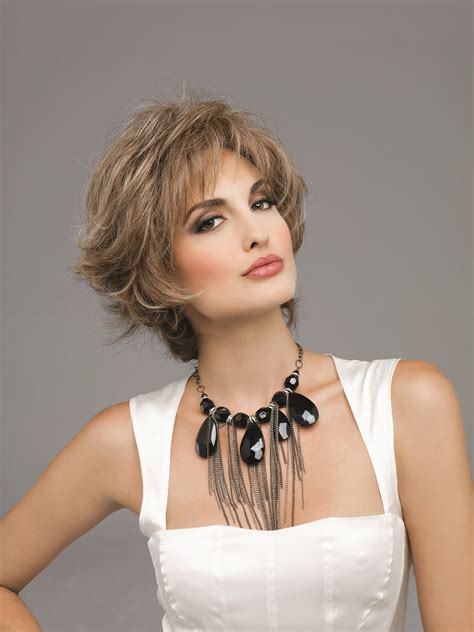Introduction

Losing hair due to chemotherapy can be a challenging and emotional experience for many cancer patients. Wigs offer a practical and stylish solution, providing comfort, confidence, and a sense of normalcy during treatment. This article provides a comprehensive guide to wigs for chemo patients, covering everything from choosing the right wig to caring for it properly.
Types of Wigs
There are two main types of wigs:
- Synthetic wigs: Made from artificial fibers, these wigs are affordable, easy to style, and require minimal maintenance.
- Human hair wigs: Made from real human hair, these wigs are more expensive but offer a natural look, feel, and styling versatility.
Choosing the Right Wig
Selecting the right wig involves several factors:
- Face shape: Consider your face shape to find a wig that complements your features.
- Hair texture: Match your natural hair texture for a seamless blend.
- Skin tone: Choose a wig color that matches or complements your skin tone.
- Head size: Measure your head circumference to ensure a comfortable and secure fit.
Fitting and Styling
- Fitting: A professional wig stylist can help ensure a perfect fit that minimizes scalp irritation.
- Styling: You can style synthetic wigs with heat tools at low temperatures, while human hair wigs can be styled like natural hair.
Caring for Your Wig
Proper care is essential to maintain the quality and longevity of your wig:
- Washing: Wash your wig regularly using a gentle shampoo and conditioner designed for wigs.
- Drying: Air-dry your wig on a wig stand to prevent tangling.
- Storing: Store your wig in a cool, dry place when not in use.
Benefits of Wigs for Chemo Patients
- Comfort: Wigs can provide a comfortable scalp covering during and after treatment.
- Confidence: Wigs can restore a sense of self-confidence and normalcy.
- Privacy: Wigs can help maintain privacy about your cancer treatment.
Why Wigs Matter
For chemo patients, wigs are more than just hairpieces. They are:
- A symbol of hope: Wigs can provide encouragement and a sense of empowerment.
- A source of support: They can offer a network of support from fellow wig wearers.
- A way to express creativity: Wigs allow patients to experiment with different looks and explore their personal style.
Tips and Tricks
- Use clips: Add clips or combs to the wig’s interior for a more secure fit.
- Wear a wig cap: Protect your scalp and keep your wig in place by wearing a wig cap.
- Perm your wig: If desired, you can perm your human hair wig to create curls or waves.
- Accessorize: Enhance your wig’s style with headbands, scarves, or jewelry.
FAQs
- Do I need a prescription to purchase a wig? No, you do not need a prescription for wigs.
- How long will my wig last? The lifespan of a wig depends on the type of wig and how well it is cared for. Synthetic wigs typically last 6-18 months, while human hair wigs can last up to 2-3 years.
- Can I wear a wig while swimming or exercising? It is not recommended to wear a wig while swimming or exercising, as it can damage the wig’s fibers.
- How often should I wash my wig? Wash your synthetic wig every 8-10 wears and your human hair wig every 10-12 wears.
Conclusion
Wigs for chemo patients offer comfort, confidence, and a sense of well-being during treatment. By understanding the types of wigs, choosing the right wig, and caring for it properly, you can maximize the benefits and minimize the challenges associated with wig wearing. Remember, wigs are a valuable tool that can empower and support you on your journey to recovery.
Tables
| Type of Wig | Cost | Maintenance | Appearance |
|---|---|---|---|
| Synthetic | $100-$500 | Minimal | Less natural |
| Human Hair | $500-$3000 | High | Most natural |
| Face Shape | Complementary Wig Shape |
|---|---|
| Oval | Round, square |
| Square | Rounded, oval |
| Diamond | Diamond, oval |
| Heart | Rounded, oval |
| Wig Care Frequency | Type of Wig |
|---|---|
| Every 8-10 wears | Synthetic |
| Every 10-12 wears | Human hair |
| Wig Benefits | Importance |
|---|---|
| Comfort | Scalp protection |
| Confidence | Emotional support |
| Privacy | Treatment discretion |
